Fiction
Fiction
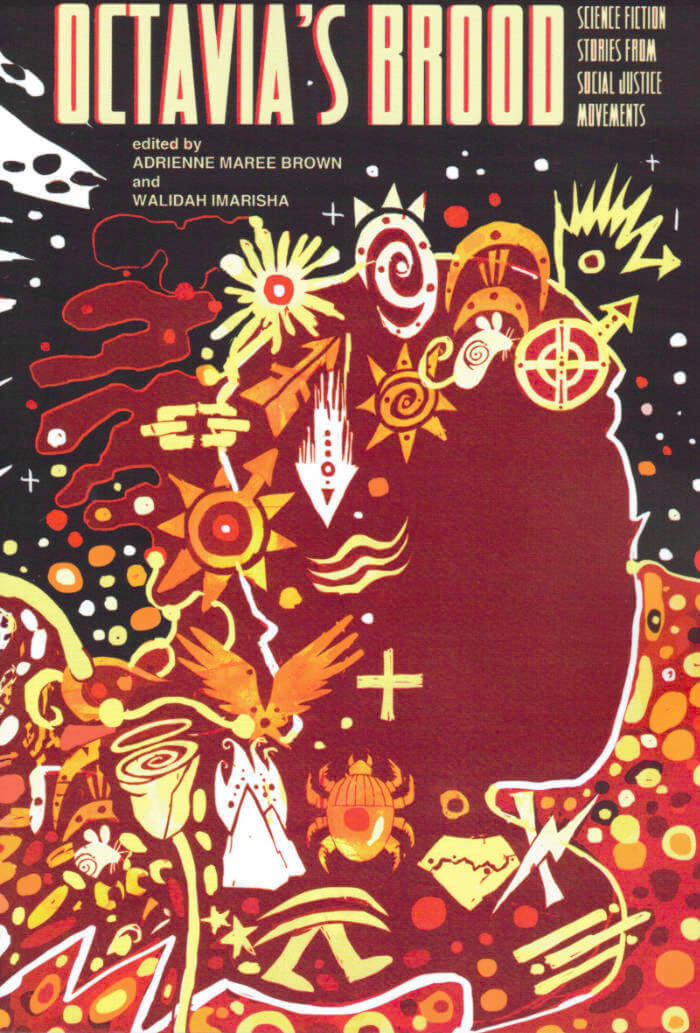
Octavia's Brood: Science Fiction Stories from Social Justice Movements
Walidah Imarisha, adrienne maree brown
Whenever we envision a world without war, prisons, or capitalism, we are producing speculative fiction. Organizers and activists envision, and try to create, such worlds all the time. Walidah Imarisha and adrienne maree brown have brought 20 of them together in the first anthology of short stories to explore the connections between radical speculative fiction and movements for social change.
These visionary tales span genres like sci-fi, fantasy, horror, magical realism, but all are united by an attempt to inject a healthy dose of imagination and innovation into our political practice and to try on new ways of understanding ourselves, the world around us, and all the selves and worlds that could be.
Also features essays by Tananarive Due and Mumia Abu-Jamal, and a preface by Sheree Renée Thomas.
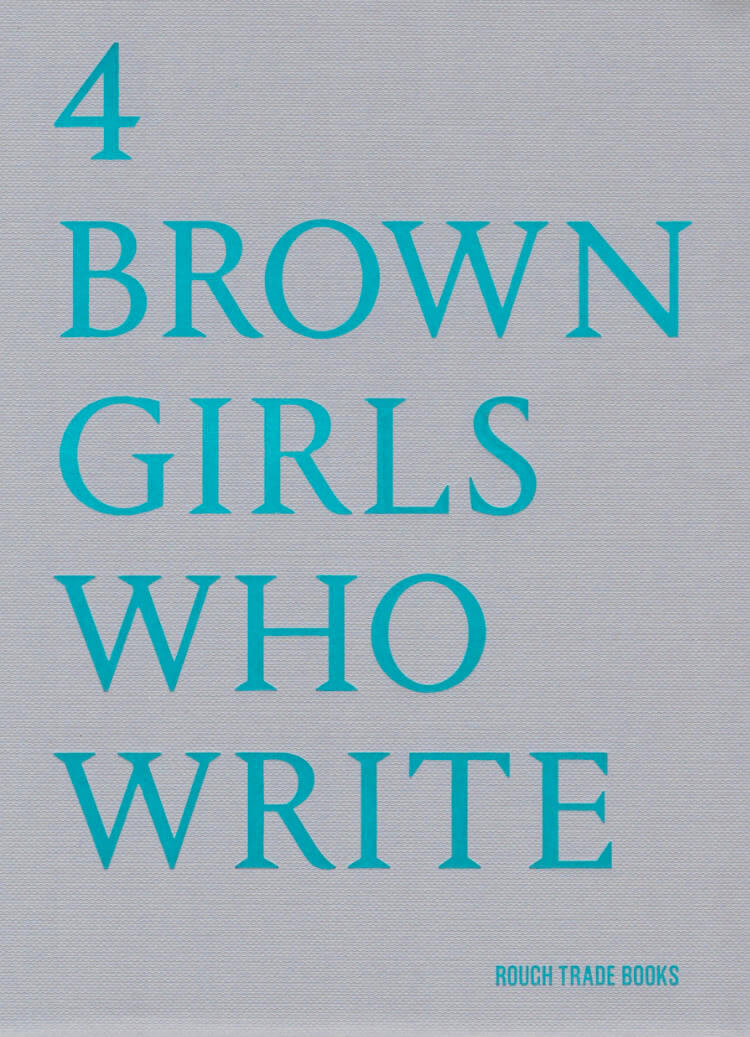
4 Brown Girls Who Write
Sunnah Khan, Sheena Patel and 2 more
Roshni Goyate, Sharan Hunjan, Sheena Patel, and Sunnah Khan are four writers that make up the talented collective '4 BROWN GIRLS WHO WRITE' and bring their radical, polyphonic performance style to bear on a series of individual pamphlets that still resonate with their collaborative force. Each author's discreet publication is a stand-alone work, published as a set of poetry and prose pamphlets, highlighting the daring, brilliant writing that characterises both the group and each individual author.

My Meteorite: Or, Without the Random There Can Be No New Thing
An expansive, radiant, and genre-defying investigation into bonding, and how we are shaped by forces we cannot fully know.
Is love a force akin to gravity? A kind of invisible fabric which enables communications through space and time? Artist Harry Dodge finds himself contemplating such questions as his father declines from dementia and he rekindles a bewildering but powerful relationship with his birth mother. A meteorite Dodge orders on eBay becomes a mysterious catalyst for a reckoning with the vital forces of matter, the nature of consciousness, and the bafflements of belonging.
Structured around a series of formative, formidable coincidences in Dodge's life, My Meteorite journeys with stylistic bravura from Barthes to Blade Runner, from punk to Pale Fire. It is a wild, incandescent book that creates a literary universe of its own. Blending the personal and the philosophical, the raw and the surreal, the transgressive and the heartbreaking, Harry Dodge revitalizes our world, illuminating the magic just under the surface of daily life.
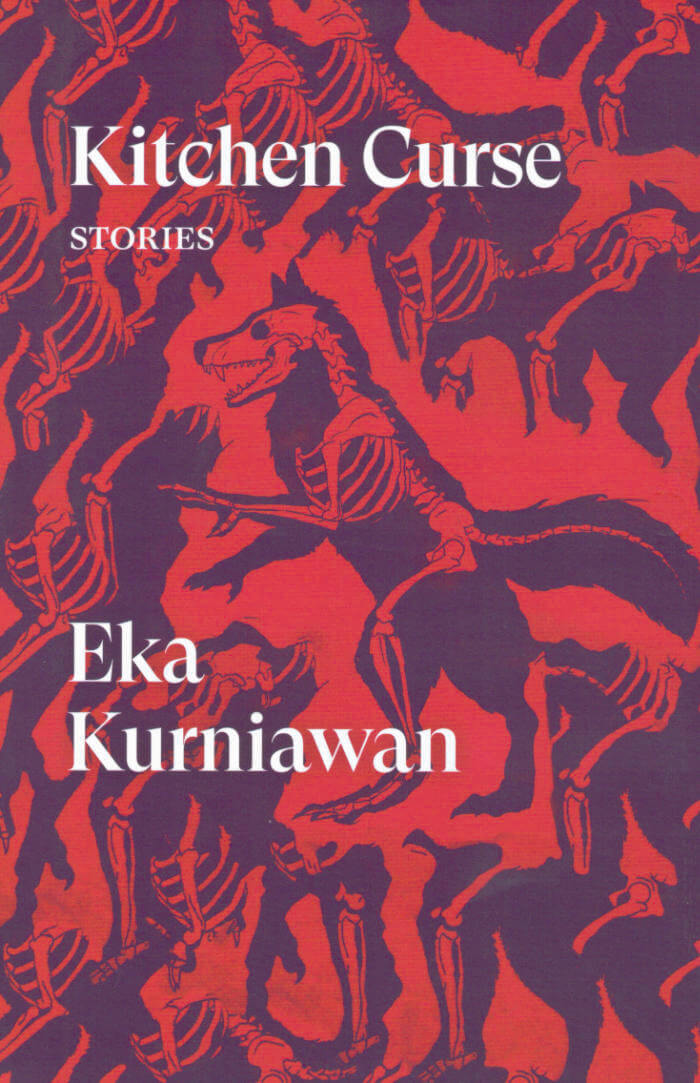
Kitchen Curse
Nominated for the Man Booker International, Eka Kurniawan brings his short stories into English for the first time.
Eka Kurniawan’s freewheeling imagination explores the turbulent dreams of an ex-prostitute, the hapless life of a perpetual student, victims of an anticommunist genocide, the travails of an elephant, even the vengeful fantasies of a stone. Dark, sexual, scatological, violent, and mordantly funny, these fractured fables span city and country, animal and human, myth and politics.
Like nothing else, Kurniawan’s stories bury themselves in the mind. His characters and insights are at once hauntingly familiar, peculiar, and twisted.

The Storyteller
The Storyteller gathers for the first time the fiction of the legendary critic and philosopher Walter Benjamin, best known for his groundbreaking studies of culture and literature, including Illuminations, One-Way Street and The Arcades Project. His stories revel in the erotic tensions of city life, cross the threshold between rational and hallucinatory realms, celebrate the importance of games, and delve into the peculiar relationship between gambling and fortune-telling, and explore the themes that defined Benjamin. The novellas, fables, histories, aphorisms, parables and riddles in this collection are brought to life by the playful imagery of the modernist artist and Bauhaus figure Paul Klee.
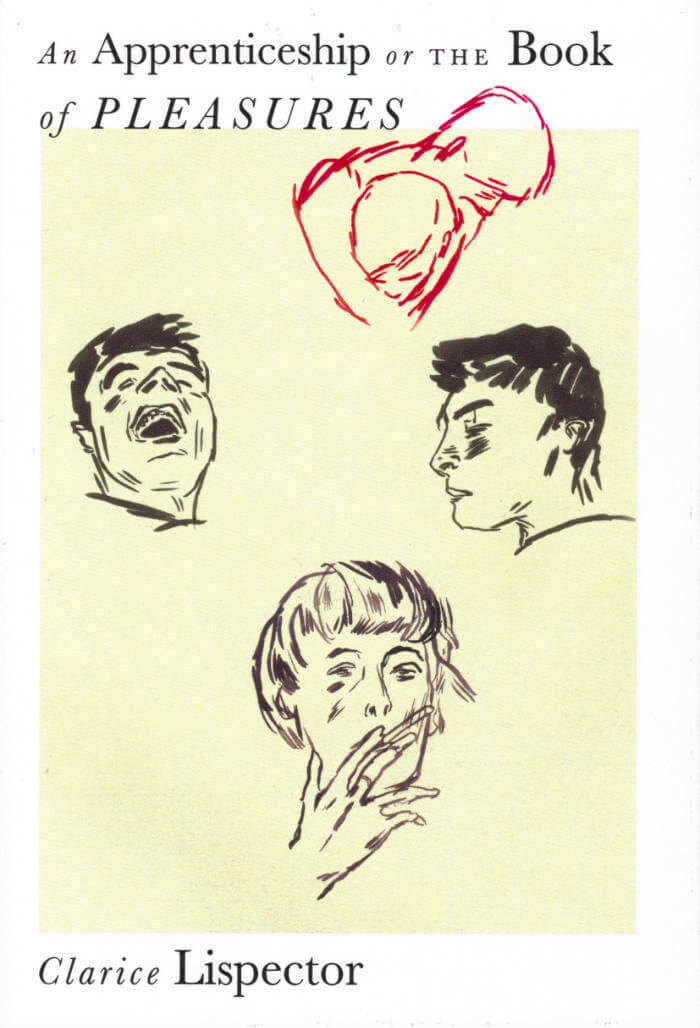
An Apprenticeship or the Book of Pleasures
In An Apprenticeship or The Book of Pleasures, Clarice Lispector tries to discover how to bridge the gap between people, or how to even begin to try.
A woman struggles to emerge from solitude and sadness into love, including sexual love: her guide on this journey is Ulisses, who (yes) leads her patiently into the fullness of life. An Apprenticeship was a bestseller and, as her biographer Benjamin Moser writes, this accessible love story surprised many readers. When it came out, an interviewer said: 'I thought The Book of Pleasures was much easier to read than any of your other books. Do you think there's any basis for that?' Clarice answered: 'There is. I humanized myself, the book reflects that.'"
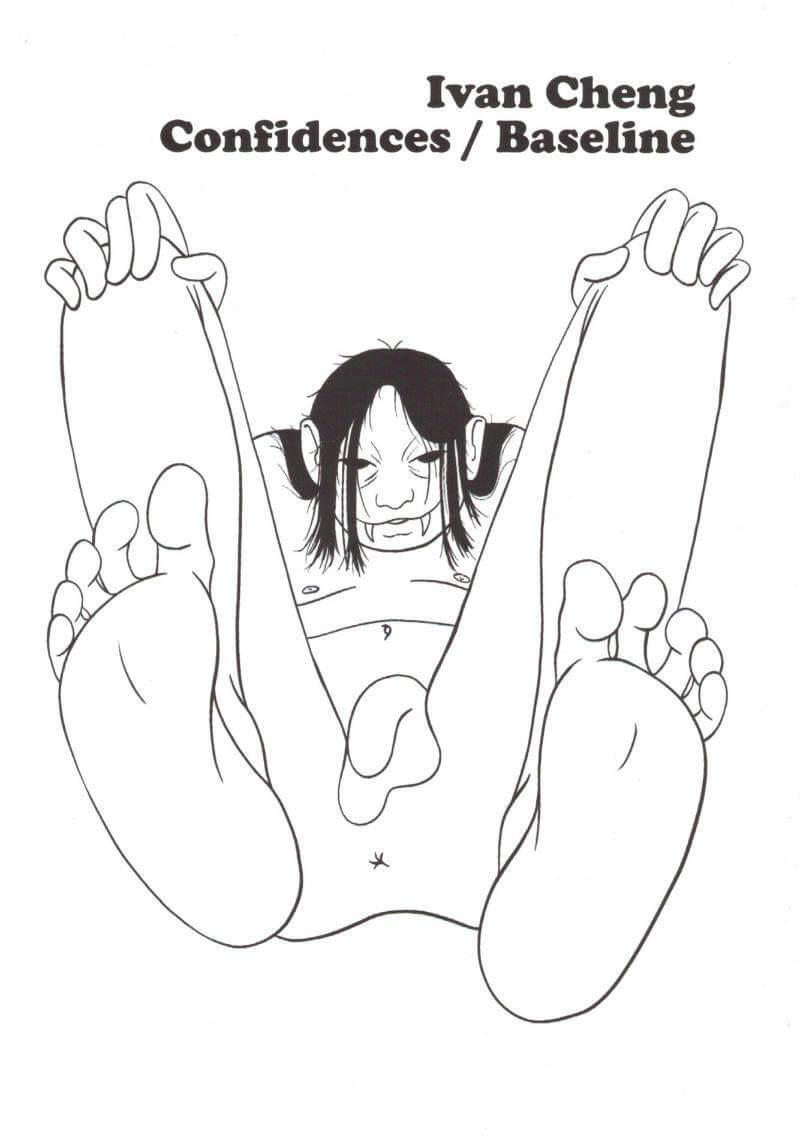
Confidences / Baseline
Confidences / Baseline plays with the vampire novel like a dollhouse. Characters who variously believe in the power of theatre and performance become entangled with grief, desire, and the unknown. What does a rehearsal come to mean when a vampire lives forever?
Baseline is the first in a series of books that fetishise nightclubs for their inaccessibility. Deluded realities anticipate the transformative sensuality of penetration. In his second novel, artist Ivan Cheng maintains his fixation on structures for audiences between public and private.
Designed by Sabo Day
Book cover by Özgür Kar
Back cover photography by Nikola Lamburov
TLTRPreß, Berlin 2021
ISBN: 978-3-9819640-5-9
176 pages, 117 x 164mm, edition of 40,2kg
About Ivan Cheng:
The performances of Ivan Cheng are incomplete, failing, desperate, and riddled with absence. They use his variously trained performing body, incanting texts that foreground subjectivity in monologues and dialogues. Identities of other interlocutors become embedded through rehearsal, dialogue, and entrustment. Without deluded presupposition of being for everyone, Cheng’s practice is invested in questions around publics and accessibility.
In 2020, he reconstituted past performance texts into a murder mystery about a street busker, and continues his foray into written genre with Confidences / Baseline. Past presentations of his texts have occurred at Volksbühne (Berlin), Oude Kerk (Amsterdam), Belvedere21 (Vienna), MuHKA (Antwerp), Nacionalinė dailės galerija (Vilnius), Unsound Festival (Krakow), Carriageworks (Sydney), Federation Square (Melbourne). He holds an MFA in Critical Studies (Sandberg Instituut), having previously studied at the Royal Academy of Music and Sydney Conservatorium of Music.

Parable of the Sower
When global climate change and economic crises lead to social chaos in the early 2020s, California becomes full of dangers, from pervasive water shortage to masses of vagabonds who will do anything to live to see another day. Fifteen-year-old Lauren Olamina lives inside a gated community with her preacher father, family, and neighbors, sheltered from the surrounding anarchy. In a society where any vulnerability is a risk, she suffers from hyperempathy, a debilitating sensitivity to others' emotions. Precocious and clear-eyed, Lauren must make her voice heard in order to protect her loved ones from the imminent disasters her small community stubbornly ignores. But what begins as a fight for survival soon leads to something much more: the birth of a new faith . . . and a startling vision of human destiny.
With a new foreword from award-winning author N. K. Jemison.

Say Bye to Reason and Hi to Everything
Dodie Bellamy, Lynne Tillman and 3 more
Say Bye to Reason and Hi to Everything is a collection of chapbooks by Dodie Bellamy, Cecilia Corrigan (with illustrations by Jocelyn Spaar), Amy De’Ath, Lynne Tillman, and Jackie Wang. Each chapbook is uniquely designed with an accompanying cover by artist Nayland Blake and features new or previously uncollected works by each writer. The collection is edited by Andrew Durbin.
This box set features the following titles:
Dodie Bellamy, More Important than the Object. Cecilia Corrigan, Cream. Amy De’Ath, ON MY LOVE FOR gender abolition. Lynne Tillman, In These Intemperate Times: 9 Frieze Columns. Jackie Wang, Tiny Spelunker of the Oneiro-Womb
Dodie Bellamy is an American novelist, nonfiction author, journalist and editor who writes genre-bending works that focus on sexuality, politics, and narrative experimentation, challenging the distinctions between fiction, essay, and poetry. Her methods include radical feminist revisions of canonical works. Bellamy is one of the originators in the New Narrative literary movement of the early and mid 1980s, which attempts to use the tools of experimental fiction and critical theory and apply them to narrative storytelling. Bellamy also directed the San Francisco writing lab, Small Press Traffic. She teaches creative writing at San Francisco State University and California College of the Arts.
Cecilia Corrigan is a writer and performer. She recently starred in the short film Crush, which she co-wrote with director Katherine Bernard, now streaming at Dazed Magazine. She was recently selected as one of Issue Project Room’s Artists in Residence for 2016-17. Her first full-length book, Titanic, won the Plonsker Prize and the chapbook True Beige, (Trafficker Press). She is completing her PhD in Comparative Literature at NYU, writing about social media, makeup, and comedy. Her fiction and essays have been published many places including n+1, Joyland, and Nerve.
Amy De’Ath’s poetry chapbooks include Lower Parallel (Barque 2014), Caribou (Bad Press 2011), and Erec & Enide (Salt 2010). With Fred Wah, she is the editor of a poetics anthology, Toward. Some. Air. (Banff Centre Press 2015). Her criticism has appeared in Women: A Cultural Review, Anguish Language (Archive Books 2015), and Cambridge Literary Review, and is forthcoming in After Objectvism: Reconfiguring 21st-Century Poetry and Poetics (U of Iowa P 2017). She is a PhD Candidate at Simon Fraser University and lives in Vancouver, on unceded Coast Salish Territories.
Lynne Tillman is a novelist, short story writer and critic. Her most recent collection of essaysWhat Would Lynne Tillman Do? was a finalist for the National Book Critics Circle Award in Criticism (2014). Her most recent novel is American Genius, A Comedy (2006), on The Millions’ list of Best Novels So Far in the Millennium. Tillman writes frequently for artists books and catalogues, and has a bimonthly column in Frieze art magazine. In fall 2016, Semiotext(e) will publish hernew collection of fiction, The Complete Madame Realism and Other Stories. She is currently finishing a novel, Men and Apparitions, due to be pubbed in 2017.
Jackie Wang is a writer, poet, musician, and author of Against Innocence (Semiotext(e)), as well as the zines On Being Hard Femme, Memoirs of a Queer Hapa, The Adventures of Loneberry, and The Phallic Titty Manifesto. In her critical essays she writes about queer sexuality, race, gender, the politics of writing, mixed-race identity, prisons and police, the politics of safety and innocence, and revolutionary struggles. Her blog, Ballerinas Dance with Machine Guns, reads like a journal that explores writing as process, the personal as political.
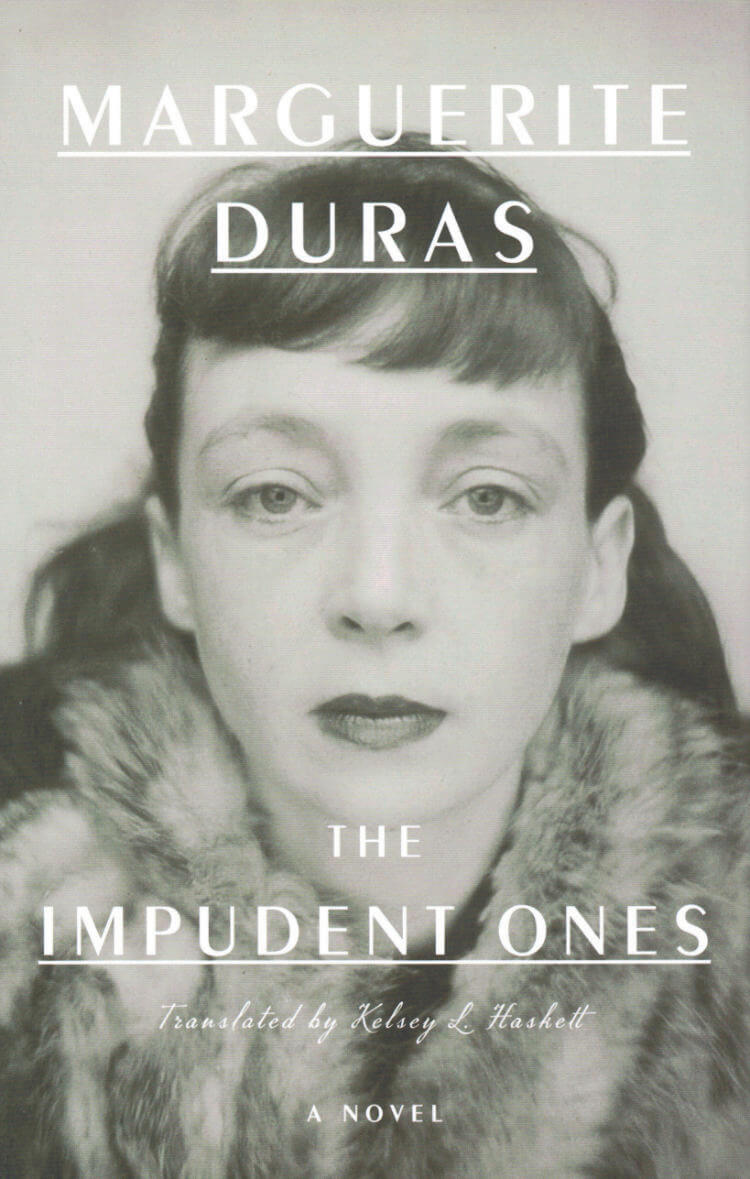
The Impudent Ones
Published for the first time in English, the debut novel of Marguerite Duras, renowned author of The Lover and The War, is the story of a family's moral reckoning and a daughter's fall from grace
Marguerite Duras rose to global stardom with her erotic masterpiece The Lover (L'Amant), which won the prestigious Prix Goncourt, has over a million copies in print in English, has been translated into forty-three languages, and was adapted into a canonical film in 1992. While almost all of Duras's novels have been translated into English, her debut The Impudent Ones (Les Impudents) has been a glaring exception, until now. Fans of Duras will be thrilled to discover the germ of her bold, vital prose and signature blend of memoir and fiction in this intense and mournful story of the Taneran family, which introduces Duras's classic themes of familial conflict, illicit romance, and scandal in the sleepy suburbs and southwest provinces of France.
Duras's great gift was her ability to bring vivid and passionate life to characters with whom society may not have sympathized, but with whom readers certainly do. With storytelling that evokes in equal parts beauty and brutality, The Impudent Ones depicts the scalding effects of seduction and disrepute on the soul of a young French girl.
Including an essay on the story behind The Impudent Ones by Jean Vallier —biographer of the late Duras—which contextualizes the origins of Duras's debut novel, this one-of-a-kind publishing endeavor will delight established Duras fans and a new generation of readers alike.
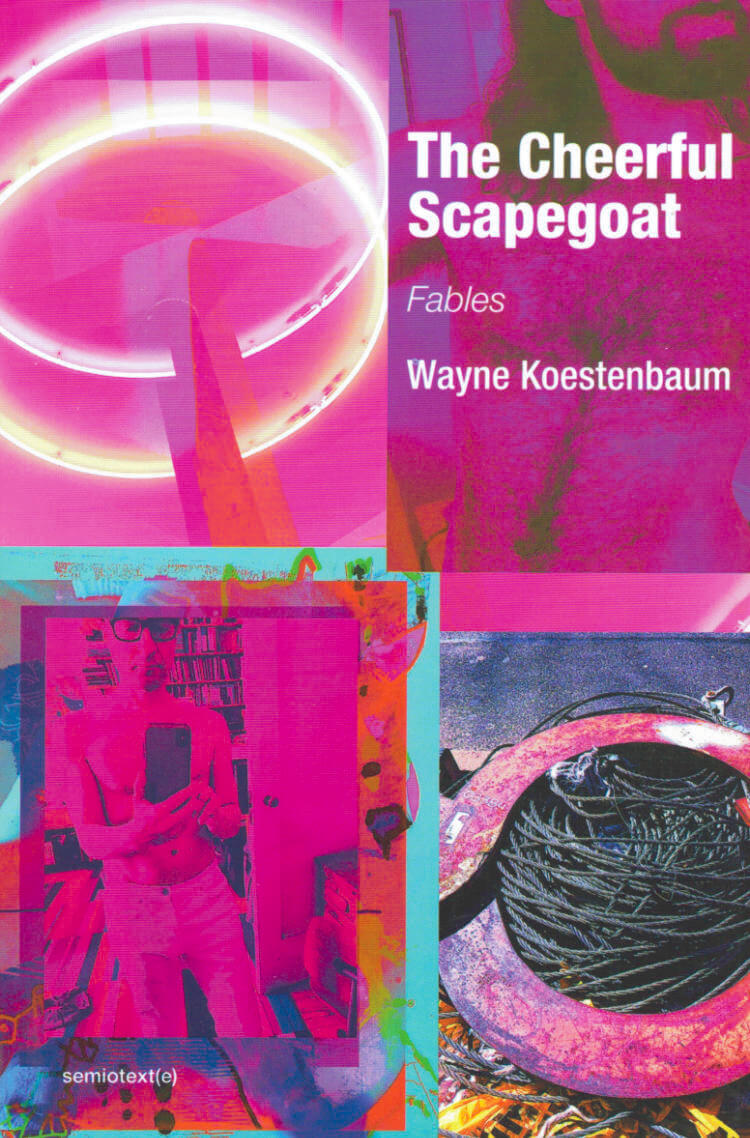
The Cheerful Scapegoat
Wayne Koestenbaum's first book of short fiction: a collection of whimsical, surreal, baroque, ribald, and heartbreaking fables.
In his first book of short fiction—a collection of whimsical, surreal, baroque, ribald, and heartbreaking fables—Wayne Koestenbaum takes the gloom and melancholy of our own terrifying political moment and finds subversive solace by overturning the customary protocols of tale-telling. Characters and narrators wander into strange locales; the difference between action and thinking, between reality and dream, grows moot in a heightened yet burlesque manner. The activities in The Cheerful Scapegoat are a cross between a comedy of manners and a Sadean orgy. Language has its own desires: figures of speech carry an erotic charge that straddles the line between slapstick and vertigo. Punishment hangs over every dialogue—but in the fable-world of The Cheerful Scapegoat, abjection comes with an undertaste of contentment. The tchotchkes of queer culture—codes and signifiers—get scrambled together in these stories and then blown up into an improbable soufflé.
Koestenbaum's fables travel in circles, slipping away from their original point and leading the reader to a paradisiacal suspension of fixed categories. Intensified sentences and curlicue narratives scheme together mesmerically to convince the reader to abandon old ways of thinking and to take on a commitment to the polymorphous, the wandering, the tangential. Koestenbaum's fables—emergency bulletins uttered in a perverse vernacular of syntactic pirouettes—alert us to the necessity of pushing language into new contortions of exactitude and ecstatic excess.
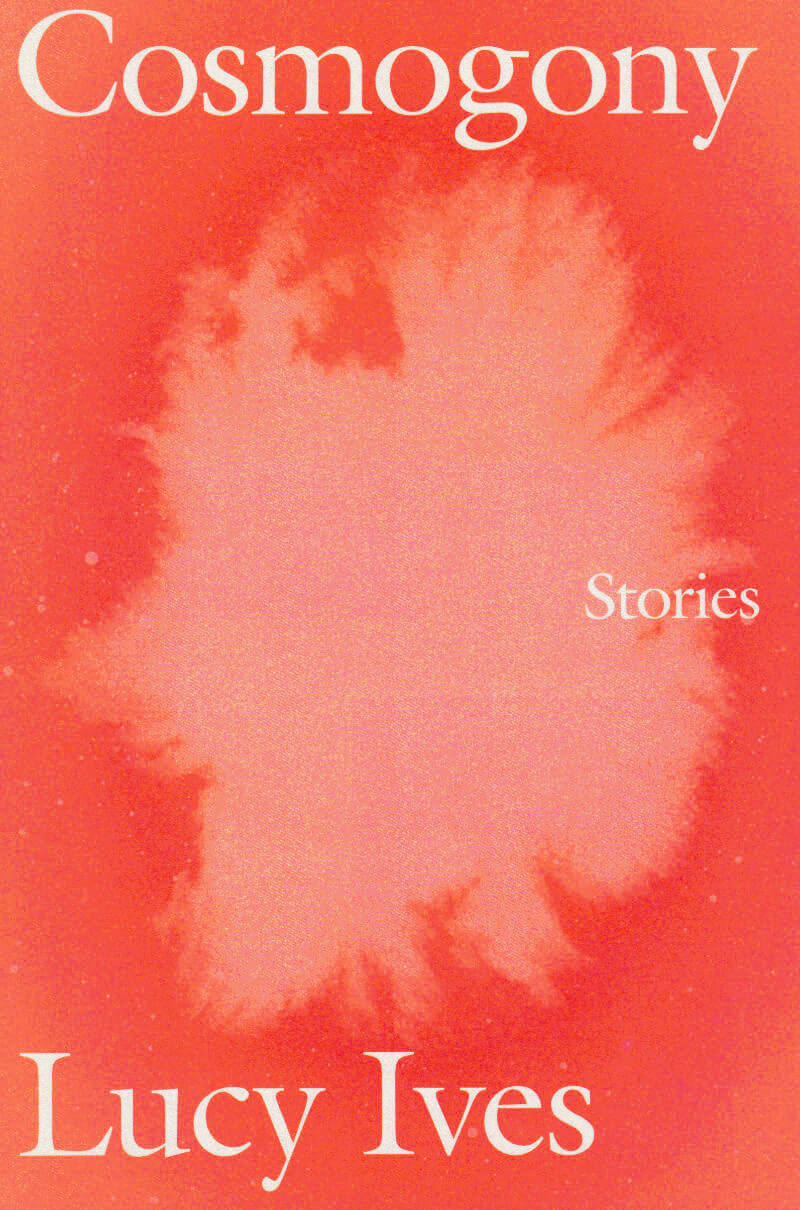
Cosmogony
An energetic, witty collection of stories where the supernatural meets the anomalies of everyday life, deception, infidelity, lost cats, cute memes, amateur pornography, and more.
There are analogies between being female and being left-handed, I think, or being an animal.
A woman answers a Craigslist ad (to write erotic diaries for money). A woman walks onto a tennis court (from her home at the bottom of the ocean). A woman goes to the supermarket and meets a friend's husband (who happens to be an immortal demon). A woman goes for a run (and accidentally time travels).
Cosmogony takes accounts of so-called normal life and mines them for inconsistencies, deceptions, and delights. Incorporating a virtuosic range of styles and genres (Wikipedia entry, phone call, physics equation, encounters with the supernatural), these stories reveal how the narratives we tell ourselves and believe are inevitably constructed, offering a glimpse of the structures that underlie and apparently determine human existence.

The Marathon Poet
Iconic poet-artist of the Swedish post-war avant-garde, Ake Hodell tells the story of his artistic journey through the absurd, satirical, tour-de-force that is THE MARATHON POET, originally published in 1981 and now available for the first time in a facsimile-style English translation.
Hodell's book is centered around a fictional race between poets, in which our author-protagonist becomes the sole qualifier after some fitness and alcohol tests. The narrative of the race is intersected by apocryphal origin stories of Hodell's earlier works that freely blur fact and fiction, taking us even as far as Hell to find a publisher for one of his books. Through para-fictional devices, repetitive language techniques, phonetic writing, and satirical humor he continuously mocks authority. Hodell's tall tales unmask and satirize oppression's many guises—from disciplinary speed reading in elementary school to the forced repetition of a military command. In one chapter, Hodell relates the history of capitalism by way of a multi-vocal sound-poem featuring the voices of European and American automobiles. Through all the tribulations experienced by the marathon poet, Hodell's pacifist and anarchist politics are always present, always in solidarity, always in resistance.
In 1941, while serving as a fighter pilot in WWII, Åke Hodell (1919-2000) miraculously survived a plane crash. During his convalescence, he decided to change the course of his life and became a poet and artist, influenced by socially critical art movements as well as by Fluxus. His experiments with language and visual art moved fluidly between a variety of forms and genres, including concrete poetry and artists books (such as igevär and Orderbuch), collage, spoken word, performance, radio theater, sound- and object-based installations, and pioneering sound-art works such as Mr. Smith in Rhodesia and Where is Eldridge Cleaver?

MW Collected Texts (Bootleg)
This bootleg edition collects scanned copies of Monique Wittig's writing. It includes; The Lesbian Body, Les Guérillères, The Opoponax, and Lesbian Peoples: material for a dictionary— In true bootleg style, punk enough to carry the truly radical words of Wittig: scans, a little grainy, with marginalia of unknown origins. Now, we can dress ourselves in the ravishingly erotic, violent splendorous brilliance to become baby Wittigs.
This edition was assembled out of a deep love of Wittig's work by Chloe Chignell.
Monique Wittig was a French author and feminist theorist particularly interested in overcoming gender and the heterosexual contract. She published her first novel, L'opoponax, in 1964. Her second novel, Les Guérillères (1969), was a landmark in lesbian feminism.
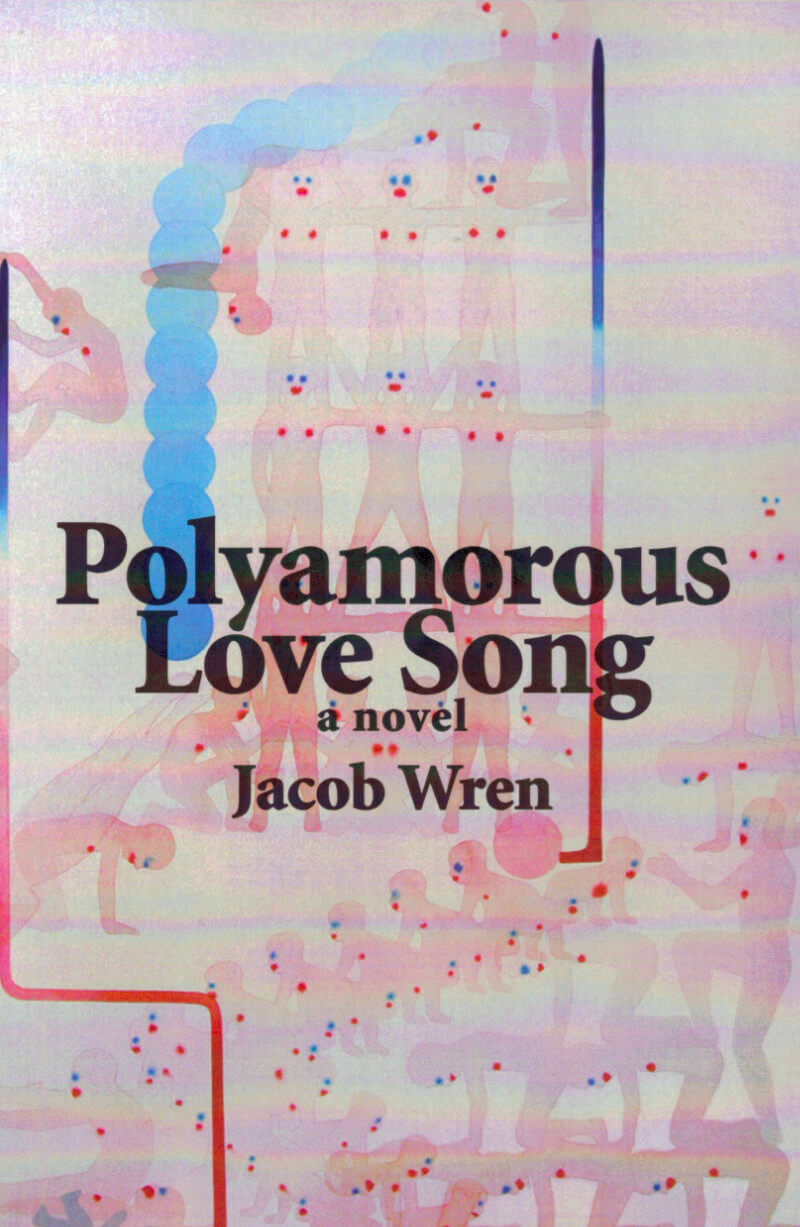
Polyamorous Love Song
From interdisciplinary writer and performer Jacob Wren comes Polyamorous Love Song, a novel of intertwined narratives concerning the relationship between artists and the world. Shot through with unexpected moments of sex and violence, readers will become acquainted with a world that is at once the same and opposite from the one in which they live. With a diverse palette of vivid characters - from people who wear furry mascot costumes at all times, to a group of New Filmmakers that devises increasingly unexpected sexual scenarios with complete strangers, to a secret society that concocts a virus that only infects those on the political right - Wren's avant-garde Polyamorous Love Song (finalist for the 2013 Fence Modern Prize in Prose) is great.
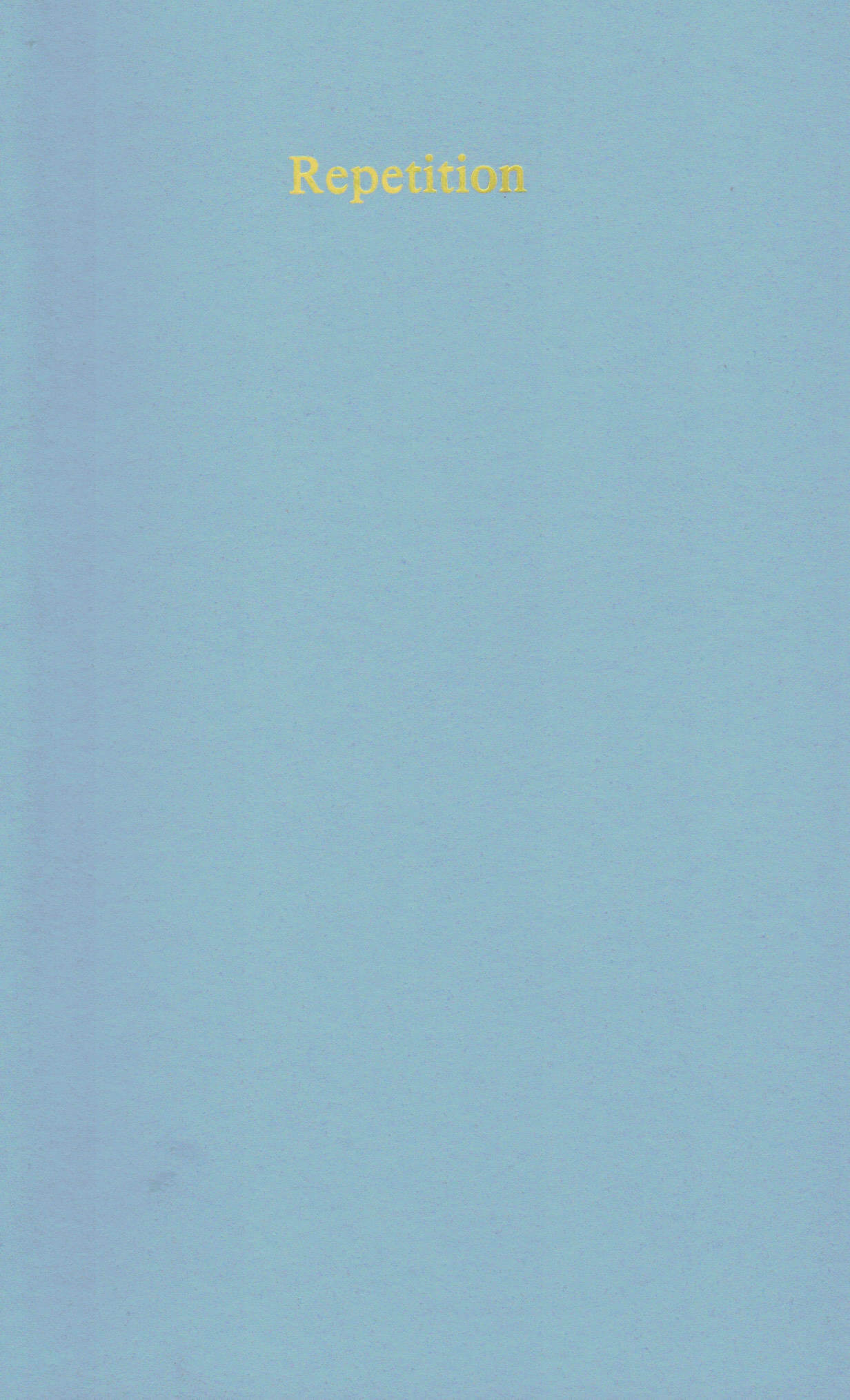
Repetition
An English translation of Peter Handke’s 1986 novel Repetition, previously out of print for a quarter of a century.
“In Repetition, Handke allows the peculiar light which illuminates the space under a leafy canopy or a tent canvas to glisten between words, placed here with astounding caution and precision; in doing so, he succeeds in making the text into a sort of refuge amid the arid lands which, even in the culture industry, grow larger day by day.” —W. G. Sebald
“In his earliest work … Handke found a way of conveying a state of mind … where words seem to come between you and the world, where nothing coheres or appears natural, and from the vantage-point of which the ease with which other people talk and go about their business seems deeply suspicious. But just as Kafka felt there were moments when, miraculously, a written sentence – even one written by himself – seemed full light, seemed to fill its own space and establish its own rhythm, and when even the whole story seemed mysteriously to stand as solidly in the world as a tree or a rock, so it has been with Handke. He has, in his later work, appeared to make a conscious effort to escape from the debilitating awareness of his own lack of authority or authenticity, and tried to write as though somehow the story were already written, had, in a sense, always been there… Repetition is the triumphant climax of his career so far…
What saves the book from the sort of sentimentality we find in John Berger’s recent work is first of all Handke’s uncanny ability to convey what it is this urge for pattern has to overcome, and secondly, his extraordinary attention to detail, historical, geographical, botanical, and linguistic. (No review can possibly convey the richness of Filip’s meditation on his brother’s two books, or Handke’s magical way with images.)
His narrative … is one of the most dignified and moving evocations I have ever read of what it means to be alive, to walk upon this earth.” —Gabriel Josipovici
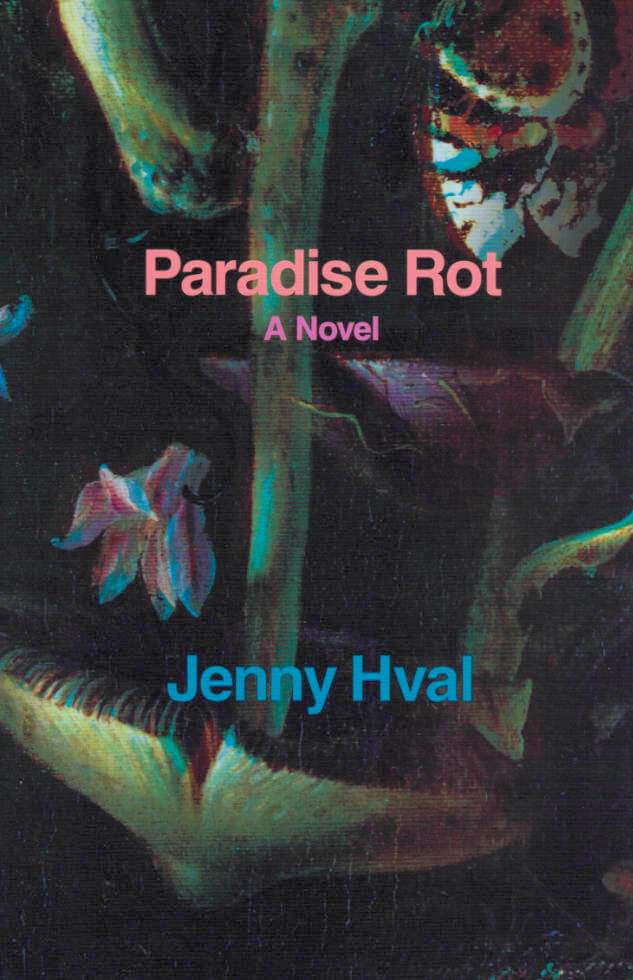
Paradise Rot
A lyrical debut novel from a musician and artist renowned for her sharp sexual and political imagery.
Jo is in a strange new country for university and having a more peculiar time than most. In a house with no walls, shared with a woman who has no boundaries, she finds her strange home coming to life in unimaginable ways. Jo's sensitivity and all her senses become increasingly heightened and fraught, as the lines between bodies and plants, dreaming and wakefulness, blur and mesh.
This debut novel from critically acclaimed artist and musician Jenny Hval presents a heady and hyper-sensual portrayal of sexual awakening and queer desire.
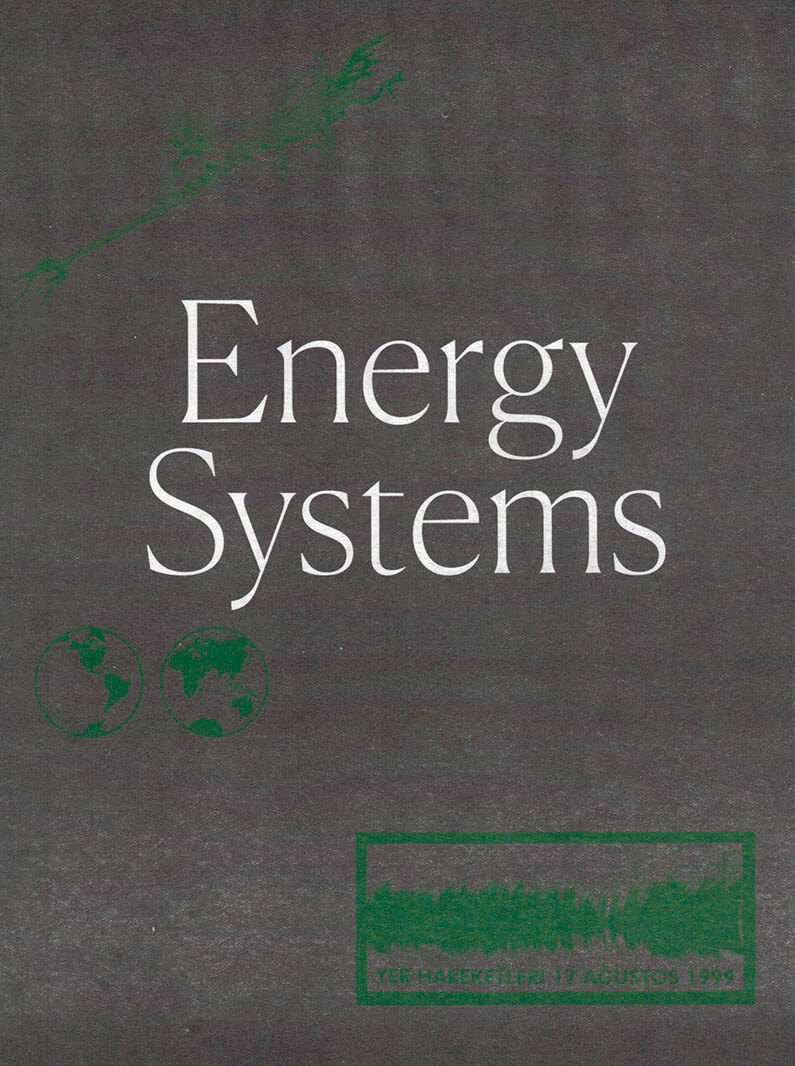
Energy Systems
Reflecting on recent ecological shifts at both local and global scales, Energy Systems explores the systems that dominate global infrastructure and the consequences of connectivism under late capitalism; probing correlations between the worldwide drive for connectivity and the emergence of severe environmental rifts.
Energy Systems seeks to find ways of replacing ‘network’ orientated capital accumulation and socio environmental exploitation with ‘metabolisms’ which are orientated toward reciprocal models of coexistence. Through newly commissioned and existing text works by 19 artists and academics, Energy Systems explores a new architecture of values and begins to build stepping stones toward addressing the systemic alienation of the environment.
Energy Systems is released as part of Well Project’s 2020 exhibition programme of the same name. You can find documentation from each exhibition held as part of the programme at: www.wellprojects.xyz
Contributors:
Verity Birt, Dimitrios Bormpoudakis, Louise Beer, Milo Creese, Joachim Coucke, Kyriaki Costa, Hector Campbell, Jack Clarke, Sophie Dyer, Sasha Englemann, Billy Fraser, Nicolette Clara Illes, Melanie King, Ruth Pilston, Lou Lou Sainsbury, Tom Sewell, Sissel Marie Tonn & Rosie Grace Ward.

I'm in the bath on all fours
‘I’m in the bath on all fours, toward blue water (my nose is bleeding), I’m an ephemeral bubble of time waiting to be popped’ is an experimental archive of exhibition and performance documentation, seminar transcripts and (visual) essays from Well Projects 2019 programme of the same name.
Across three phases, IITBOAF,TBW(MNIB),IAEBOTWTBP invited pairs of artists and academics to collaborate and expand on notions of the sub-aqueous, engaging with the nature of water, embodied experiences and the deep dark in relation to community and commonality.
Contributors:
Flora Parrott, Lindiwe Matshikiza, Harriet Hawkins, Lucy Mercer, Amy Pettifer & Jennifer Boyd (SHELL LIKE) Madeleine Stack, Leyla Pillai, Alex Borkowski, Hannah Rowan, Rachel Squire, Rikke Berg Jensen, Korallia Stergides & Raphael Schulenburg.
I’m in the bath... programme was curated by Kris Lock & George Harding with support from Flora Parrott
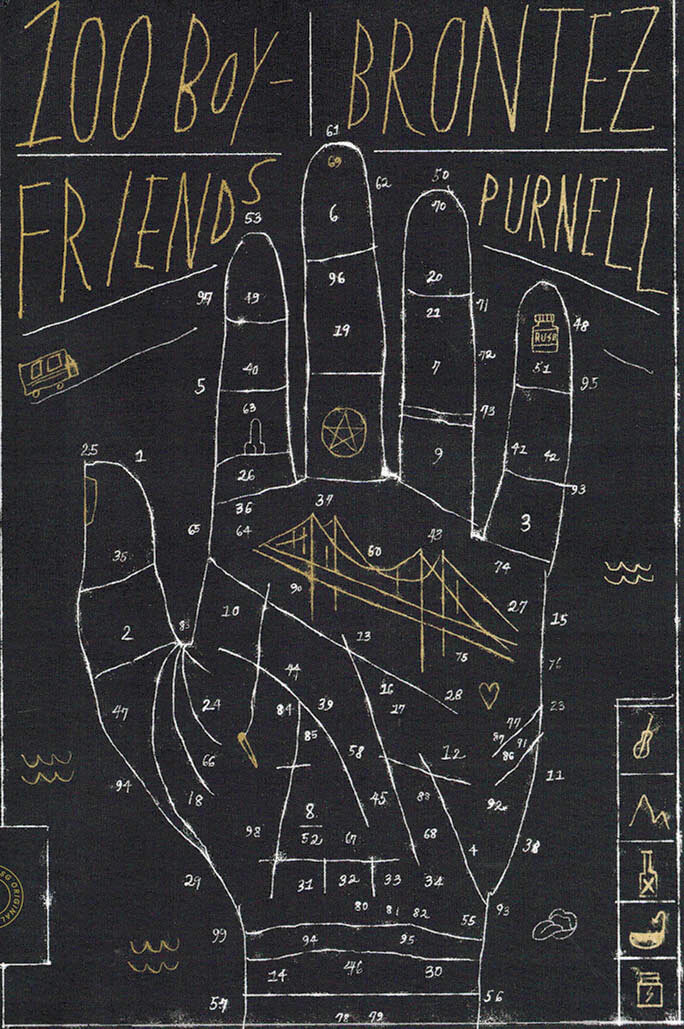
100 Boyfriends
Transgressive, foulmouthed, and brutally funny, Brontez Purnell's 100 Boyfriends is a revelatory spiral into the imperfect lives of queer men desperately fighting the urge to self-sabotage. As they tiptoe through minefields of romantic, substance-fueled misadventure, from dirty warehouses and gentrified bars in Oakland to desolate farm towns in Alabama, Purnell's characters strive for belonging in a world that dismisses them for being Black, broke, and queer. In spite of it, or perhaps because of it, they shine.
"Brontez Purnell has such seemingly casual genius that at times you forget you're reading a book and are transported to some couch/bus/basement where the drugs are really good and your friend is really funny, maybe your weird closeted cousin is on HarlemHookups in the corner, and all of a sudden your friend says some fucking Sappho ass, weird ass, brilliant ass bullshit. I love this slut of a book, it's a slut ass maker. 100 Boyfriends or no new boyfriends at all, Purnell's autofiction/memoir/whatever the hell this marvelously sad and intoxicating book is shook me up good with its honesty and blunt-to-face endings, the jokes and stories I didn't know we were allowed to tell outside of circles of faggots and misfits. But this book is in those circles, makes you tea and steals for you, it invites us in, but would we mind shutting the hell up cause it's a little hungover? The light is coming through the windows so clear." — Danez Smith, author of Homie
Brontez Purnell is a writer, musician, dancer, filmmaker, and performance artist. He is the author of a graphic novel, a novella, a children's book, and the novel Since I Laid My Burden Down. The recipient of a 2018 Whiting Writers' Award for Fiction, he was named one of the thirty-two Black Male Writers of Our Time by T: The New York Times Style Magazine in 2018. Purnell is also the frontman for the band the Younger Lovers, a cofounder of the experimental dance group the Brontez Purnell Dance Company, the creator of the renowned cult zine Fag School, and the director of several short films, music videos, and the documentary Unstoppable Feat: The Dances of Ed Mock.
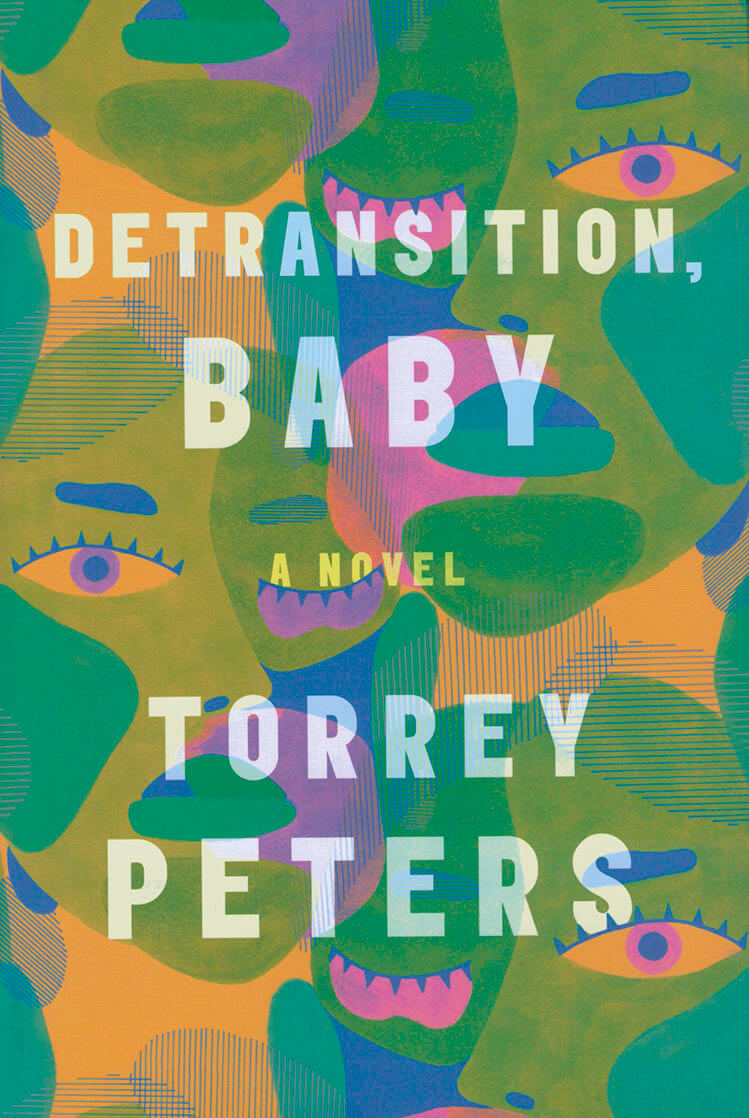
Detransition, Baby
A whipsmart debut about three women—transgender and cisgender—whose lives collide after an unexpected pregnancy forces them to confront their deepest desires around gender, motherhood, and sex.
Torrey Peters is the author of the novellas Infect Your Friends and Loved Ones and The Masker, which are available for free on her website. She holds an MFA from the University of Iowa and an MA in Comparative Literature from Dartmouth. She grew up in Chicago and now lives in Brooklyn.

Flatland: A Romance of Many Dimensions
Flatland: A Romance of Many Dimensions is an 1884 satirical novella by the English schoolmaster Edwin Abbott Abbott. Writing pseudonymously as "A Square," the book used the fictional two-dimensional world of Flatland to offer pointed observations on the social hierarchy of Victorian culture. However, the novella's more enduring contribution is its examination of dimensions.
Several films have been made from the story, including a feature film in 2007 called Flatland. Other efforts have been short or experimental films, including one narrated by Dudley Moore and the short films Flatland: The Movie and Flatland 2: Sphereland starring Martin Sheen and Kristen Bell.
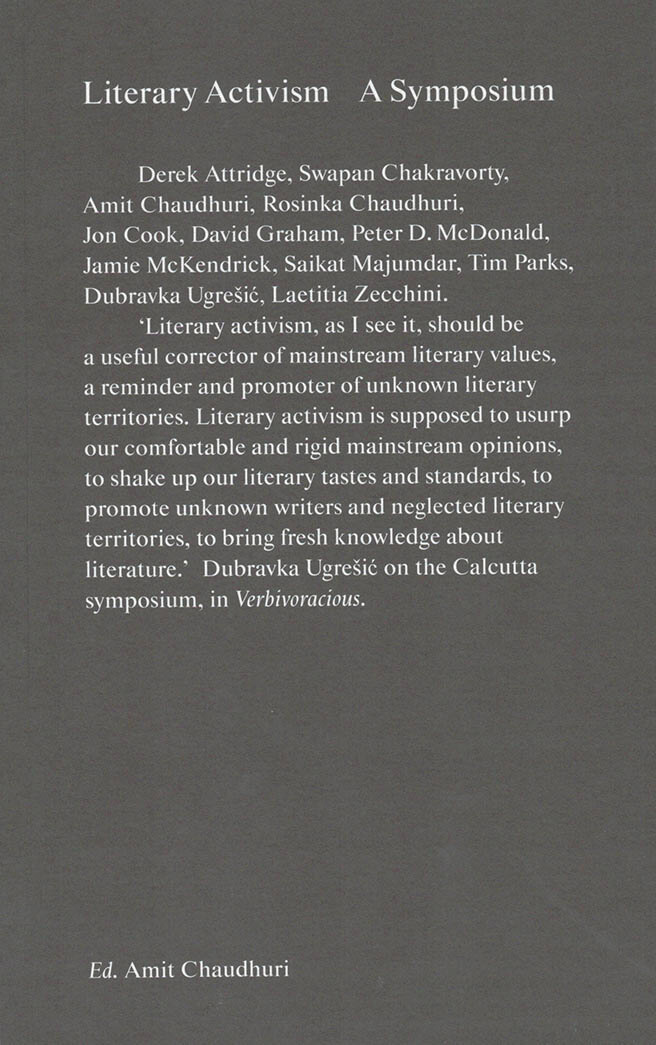
Literary Activism
Literary Activism – activism that revisits and interrogates an idea of literature – emerges from a radically altered landscape for both publishing and academia, where market pressures are effecting changes – on language, on the measuring of value, on the concept of influence – we might struggle to recognise.
Taking in the roles of writer, critic, translator, academic and publisher, the essays in this volume follow no single line of enquiry. Rather, they offer the beginnings of an analysis of the literary world at a certain moment of globalization, while also questioning whether a literary world exists and, if it does, where its boundaries lie.
The collection moves in many directions – from Arun Kolatkar and his near-heroic refusal of both market place and reputation; to Derek Attridge, who argues for a form of affirmative criticism which positions the critic as a ‘lover of the text’; while, from Amsterdam, Dubravka Ugrešić reflects on life in a literary ‘out of nation zone’, adrift in a territory where intellectual protest has been stripped of ideological impetus and subsumed by the voraciousness of the market.
Taken together, these essays initiate a series of conversations about who reads what and why, about the practice of writing and criticism at this particular contemporary moment, and about the activities and institutions that shape an understanding of what literature is and what it can do.
Literary Activism, edited by Amit Chaudhuri, features writing from Derek Attridge, Tim Parks, Dubravka Ugrešić, Laetitia Zecchini, Peter D. Macdonald, Saikat Majumdar, Jamie McKendrick, and Swapan Chakravorty, with an afterword by Jon Cook.
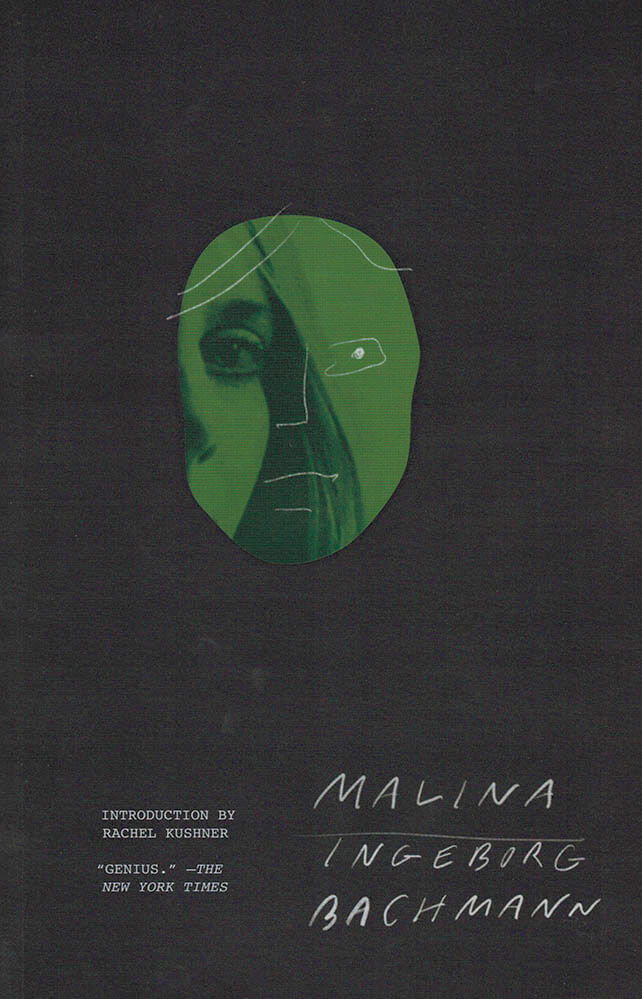
Malina
Malina invites the reader on a linguistic journey, into a world that stretches the very limits of language with Wittgensteinian zeal and Joycean inventiveness, where Ingeborg Bachmann ventriloquizes, and in the process demolishes, Proust, Musil, and Balzac, and yet filters everything through her own utterly singular idiom. Malina is, quite simply, unlike anything else; it's a masterpiece.
In Malina, Bachmann uses the intertwined lives of three characters to explore the roots of society's breakdown that lead to fascism, and in Bachmann's own words, "it doesn't start with the first bombs that are dropped; it doesn't start with the terror that can be written about in every newspaper. It starts with relationships between people. Fascism is the first thing in the relationship between a man and a woman, and I attempted to say that here in this society there is always war. There isn't war and peace, there's only war."